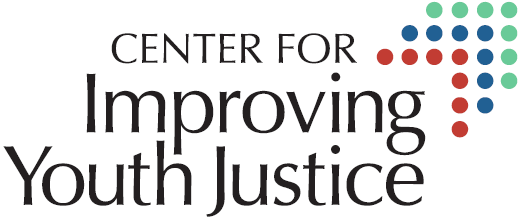Her first experience with juvenile justice was as a teenager. Since then, and for the past 30 plus years, Velvet has been turning the lives of troubled young people around and making sure that above all else, that ‘care’ is included in their care.
Velvet’s first experience with the juvenile justice system was as a teenager. Like many teenagers, she struggled to find her path: “I was defiant, I was incorrigible and I often ran away from home,” she says. “If it wasn’t for caring people in the juvenile justice field, I don’t know how my life would have been.” She has spent the last 30 plus years working to turn around the lives of other troubled young people. “I had caring adults in my life that had made conscious decisions on my behalf, that led me to this rewarding path.”
Velvet started her career in juvenile justice in 1985 as a youth counselor. “Several months later, we moved from being called youth counselors to being called juvenile correction officers,” which made her feel uncomfortable and didn’t go with the job description. She says, “‘Officer’ seemed so authoritative. We were told to just do security, custody and control. We were told not to talk to the youths unless it was to direct them and not ask them how their day was because that wasn’t what we were being paid for.” Velvet says, “I wanted to do more than what the position description required. The job duties included custody, control, security and maintaining order and safety at all times. One word was missing from our daily officer duties ― that word was ‘care.’” To Velvet, the idea of looking after the youths ― many of whom could have been her ― without compassion was unfathomable. “We were a child service agency, but we were not supposed to care about the children we were serving ― can you imagine? I found myself caring for the youths assigned to our facilities secretly.” She was once told by a supervisor that if they showed care, it would be taken as a sign of weakness and the juveniles could take advantage of their kindness. “I pondered about that and wondered: ‘How can we make the youths better, if we are not modeling what that looks like, what care and kindness look like?’” She knew then that it was her life’s mission to serve youths to the best of her ability and with a lot of care.
Since then, Velvet has worked her way up in the South Carolina Department of Juvenile Justice through the roles of unit manager, lieutenant of security, major of internal training, facility administrator, deputy chief of security and operations and PbS state coordinator to her position now as deputy director for the Division of Institutional Services. “It’s been a real good journey ― I feel like I just started yesterday ― but I had some real good women mentors.” Some of the most impactful things she’s witnessed have been simple but profound shifts in how youths are treated. “At one point in time, it was a cookie-cutter approach; they wanted to treat all youths the same.” But as Velvet understood, equity sometimes means recognizing and respecting the differences. “What we dressed the male youths in, we did the same for females. We were putting girls in jumpers that were made by adults in corrections for male youths.” To Velvet, after advocating with “a bunch of bold strong women” they celebrated a big win. “We were able to put our girls in polo shirts and pants that were made for females instead of males… I’ve learned that we can’t give up and we can’t settle.”
Velvet’s current passion is focusing on mental health care for youths. “People don’t realize that a lot of our kids come into the system and their lives already look like a war zone, before they even come to us. I’m really happy with the approach to trauma-informed care that our nation and facilities are going toward.” She ensures all the programs under her purview include counseling, connection and above all else, care. All the officers on her team of staff are also trained in counseling. “We are dealing with lives ― children’s lives ― everything we have to do has to be better, even if it’s only slightly better than the day before. They deserve better and we must give better.”
She wants all women starting a career in juvenile justice to know: “Everything you do creates an impact. You have the ability to change lives every day.” Velvet demonstrates every day the impact a positive adult can make on a child’s life. She does that by remembering each day, why she does what she does. “If you remember your ‘why’, everything else will fall into place. The potential is always bigger than the problem.” And she remembers to ask herself: “Girl, what are you going to share today, what is your gift to the world?”

